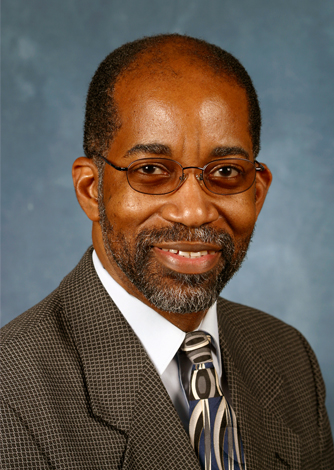
David Williams, a Harvard professor and member of the National Association of Sciences’ Institute of Medicine, sees a connection between discrimination and health.
Photo courtesy of David Williams.
Most people are aware that regular exercise and a healthful diet that includes plenty of fruits and vegetables can lead to better overall health.
But other factors are also at work, said Professor David R. Williams of Harvard University during his talk Sunday evening in Missouri Theatre.
Geographic location, socioeconomic status, education and race discrimination play a role, said Williams, a professor of African and African-American studies and of sociology.
His most alarming assertion was that a patient’s race could affect the level of medical treatment offered by doctors and nurses. Williams cited a study of a California hospital’s emergency room medical records of patients with a broken bone. “Hispanics were 7.5 times more likely than non-Hispanic whites to receive no pain medication,” Williams said. In America, “minorities receive fewer procedures and poorer quality medical care than whites.”
Williams is the Florence and Laura Norman Professor of Public Health at the Harvard School of Public Health. In 2001, he became a member in the National Academy of Sciences’ Institute of Medicine.
Williams’ talk, titled “Making America Healthier: What Can Each of Us Do?”, was sponsored by Mizzou Advantage and the Chancellor’s Distinguished Visitors Series. It was part of the School of Health Professions’ Discovery Conversation Series.
During his hour-long presentation, Williams listed a surprising number of factors that contribute to people’s health. Due to an area’s culture, which can include various levels of racial bias, people’s “ZIP code is a stronger predictor than genetic code” of health, he said. Moreover, statistics show that people with high household income are generally healthier than people with low household income.
Indeed, lower socioeconomic status early in one’s life has affects “from cradle to grave” on health, he said. For example, if someone was raised in poverty during childhood, that experience will influence the person’s lifelong health even if he or she becomes financially successful. “Our bodies carry full exposure over our lifetime,” Williams said.
Racism remains a factor. “Immigrants have better health than the U.S. average, but their health worsens the longer they are here in America,” suggesting the toll of stress on minorities’ health, Williams said.
Williams cited a study that compared birth outcomes of Arab-Americans six months before and six months after the 9/11 American terrorist attacks. The latter records showed that low birth rate and preterm births increased in babies born to these parents.
The professor also spoke about the toll of “unconscious discrimination,” or “how all normal human beings process information.” Racial stereotypes are “unconscious and automatic.” This explains, he said, why California doctors and nurses could fail to administer pain medication equally between Hispanics and whites in an emergency room.
Bias and racism are “activated more quickly and effortlessly than our conscious thought,” he said. Williams implored his audience to set aside preconceived biases and actively “focus on the individual attributes of a person.”
He finished by quoting the Irish philosopher Edmund Burke, who said, “The only thing necessary for the triumph [of evil] is for good men to do nothing.”

